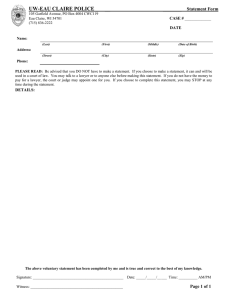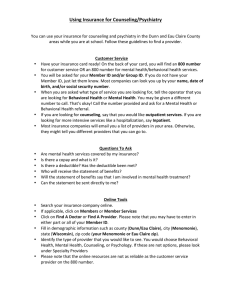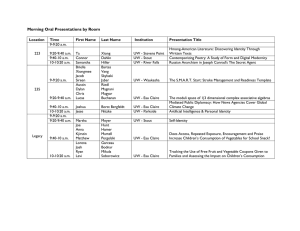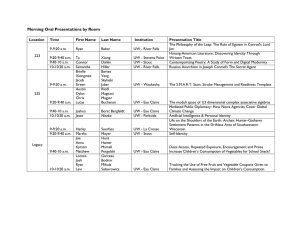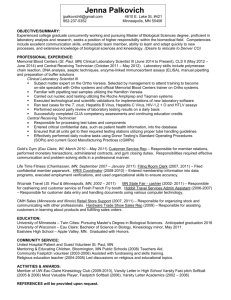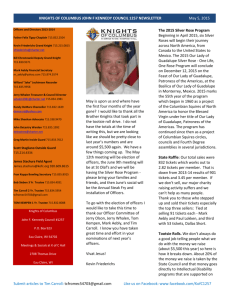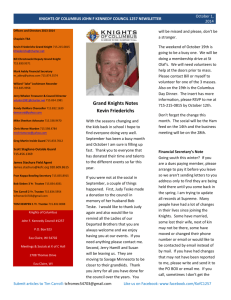Health in All Policies Presentation (PowerPoint)
advertisement
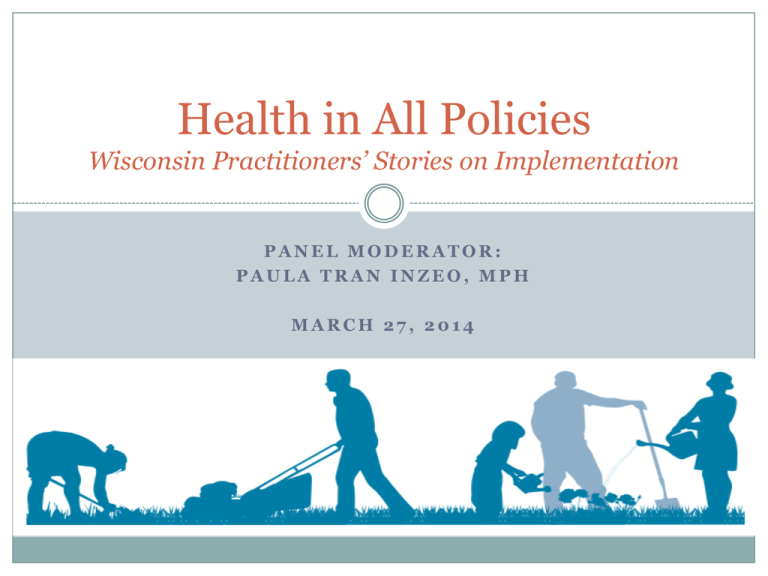
Health in All Policies Wisconsin Practitioners’ Stories on Implementation PANEL MODERATOR: PAULA TRAN INZEO, MPH MARCH 27, 2014 What is Health in All Policies? A collaborative approach to improving the health of all people by incorporating health considerations into decision-making across sectors and policy arenas http://www.phi.org/resources/?resource=hiapguide History Five Key Elements Promote health, equity, and sustainability Support intersectoral collaboration Benefit multiple partners Engage stakeholders Create structural or procedural change Healthiest WI 2020 Pillar Objectives Comprehensive data to track health disparities Resources to eliminate health disparities Policies to reduce discrimination and increase social cohesion Policies to reduce poverty Policies to improve education Improved and connected health service systems Youth and families prepared to protect their health and the health of their community Environments that foster health and social networks Capability to evaluate the effectiveness and health impact of policies and programs Resources for governmental public health infrastructure A Framework for Health Equity BARHII Root Cause Analysis Approaches Opportunist Identify issues, policies, or relationships that can potentially proved early success for all partners Issue Identify policies that have a major impact on specific public health priorities Sector Focuses on one specific policy area that has a large impact on health Looking for opportunities? Are there any existing or newly forming interagency initiatives that have potential health implications? (CHIPP and Comprehensive Plans) What single-agency initiatives would benefit from partnership with additional agencies? (Farm to School?) Is your agency, or another agency going through a strategic planning process? (United Way?) Is there a new or ongoing process where health metrics or data can be added? What partners have you worked with successfully in the past? Is there a particular health issue of concern to community groups? Panel Members Isaiah Brokenleg from the Great Lakes Intertribal Council will discuss the need for a food justice perspective in the recent mining bills/proposals. Nancy Coffey from Eau Claire County UW Extension will discuss the inclusion of a health chapter in the City of Eau Claire's most recent Comprehensive plan Kurt Eggebrecht from the City of Appleton Health Department will provide insights related to collective impact efforts related to his participation in the Weight of the Fox Valley effort. Sarah Wright from the re:TH!NK coalition will discuss their work on school wellness policies. Panel Questions What has been the biggest challenge of this effort? What have been the biggest successes? What lessons would you share with others trying to do this type of work? Are there any resources they can share with the group that they have created? Including example plans? Audience Q and A
